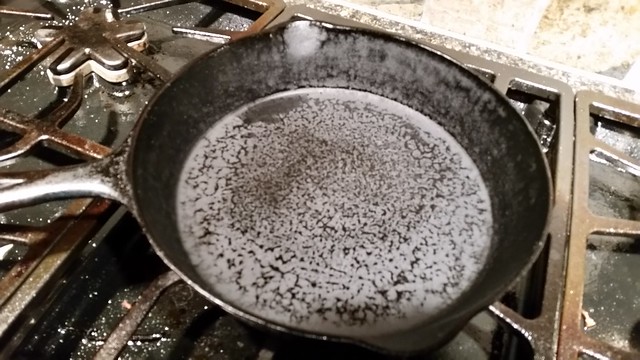I believe I have the same symptom as in http://www.castironcollector.com/forum/showthread.php?t=4176 but didn't want to hijack someone else's thread.
I received a Griswold #10 in what looked to be pretty decent condition from a family member as a gift. It looked like it had some surface rust in spots, but very little seasoning. Green scrubbie and water/vinegar took it down to grey metal in all but a few spots on the pan. I then proceeded to manually season the pan with coats of canola oil and into the oven at 450 for 30 min. After the 4th cycle the pan was still pretty brown vs getting to black. I found the article here about seasoning and noted the step which was missing from the other (sites) articles on how to season. That is wiping off most of the oil before placing it in the oven.
Anyway I think I didn't wipe off enough oil. I now have blotchiness and not a totally smooth surface on the pan (and a bit tacky in spots). Will that go away with regular cooking use? Or am I looking at needing to strip the seasoning and start over?
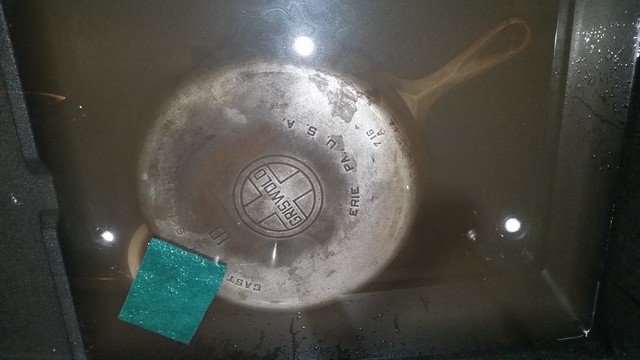 2016-10-04 21.36.16 by Erich Weidner, on Flickr
2016-10-04 21.36.16 by Erich Weidner, on Flickr
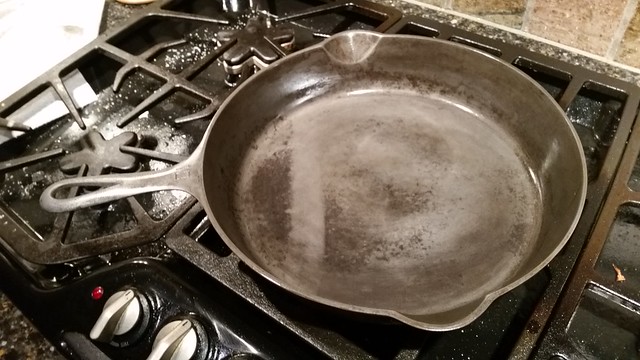 2016-10-04 22.03.19 by Erich Weidner, on Flickr
2016-10-04 22.03.19 by Erich Weidner, on Flickr
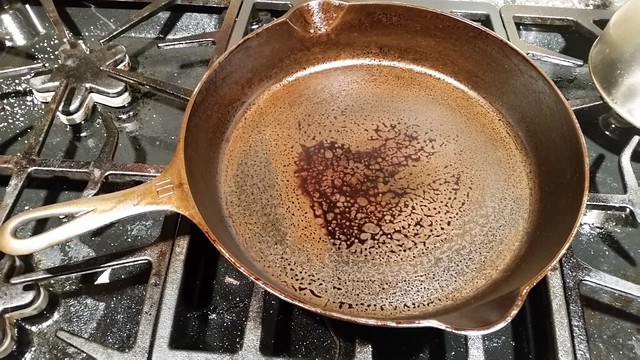 2016-10-04 23.50.04 by Erich Weidner, on Flickr
2016-10-04 23.50.04 by Erich Weidner, on Flickr
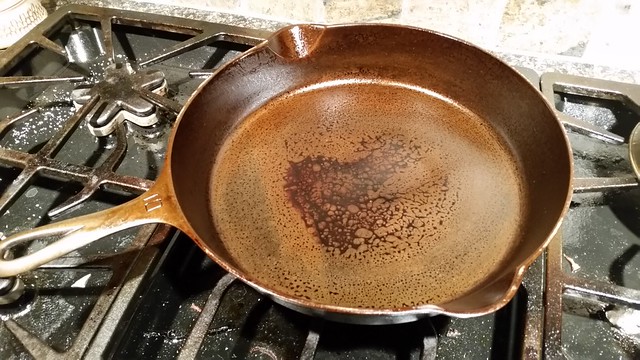 2016-10-05 00.29.30 by Erich Weidner, on Flickr
2016-10-05 00.29.30 by Erich Weidner, on Flickr
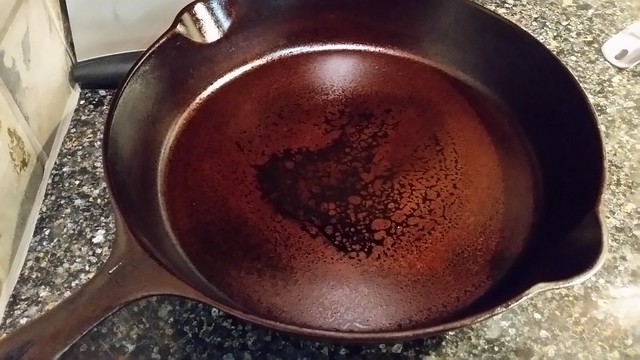 2016-10-06 18.47.20 by Erich Weidner, on Flickr
2016-10-06 18.47.20 by Erich Weidner, on Flickr
I received a Griswold #10 in what looked to be pretty decent condition from a family member as a gift. It looked like it had some surface rust in spots, but very little seasoning. Green scrubbie and water/vinegar took it down to grey metal in all but a few spots on the pan. I then proceeded to manually season the pan with coats of canola oil and into the oven at 450 for 30 min. After the 4th cycle the pan was still pretty brown vs getting to black. I found the article here about seasoning and noted the step which was missing from the other (sites) articles on how to season. That is wiping off most of the oil before placing it in the oven.
Anyway I think I didn't wipe off enough oil. I now have blotchiness and not a totally smooth surface on the pan (and a bit tacky in spots). Will that go away with regular cooking use? Or am I looking at needing to strip the seasoning and start over?
 2016-10-04 21.36.16 by Erich Weidner, on Flickr
2016-10-04 21.36.16 by Erich Weidner, on Flickr 2016-10-04 22.03.19 by Erich Weidner, on Flickr
2016-10-04 22.03.19 by Erich Weidner, on Flickr 2016-10-04 23.50.04 by Erich Weidner, on Flickr
2016-10-04 23.50.04 by Erich Weidner, on Flickr 2016-10-05 00.29.30 by Erich Weidner, on Flickr
2016-10-05 00.29.30 by Erich Weidner, on Flickr 2016-10-06 18.47.20 by Erich Weidner, on Flickr
2016-10-06 18.47.20 by Erich Weidner, on Flickr
Last edited:

